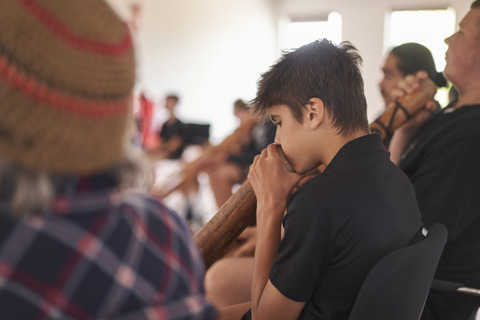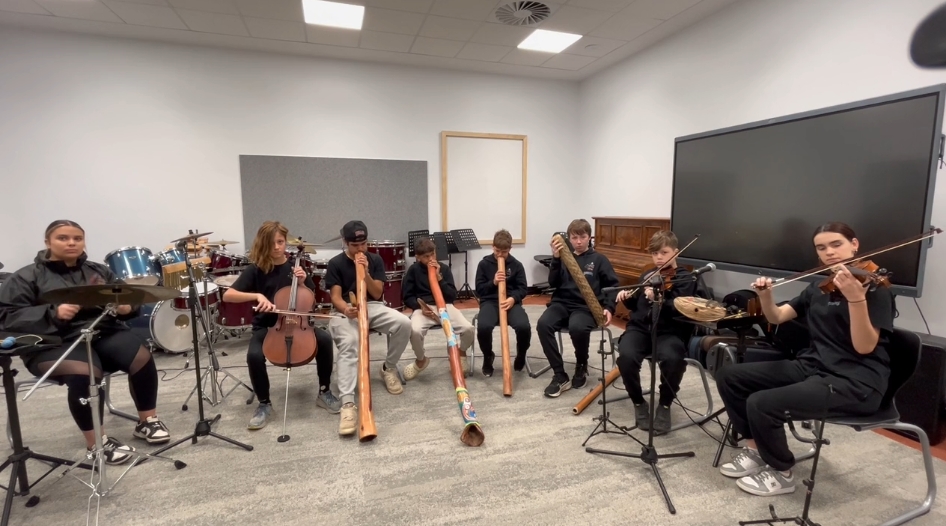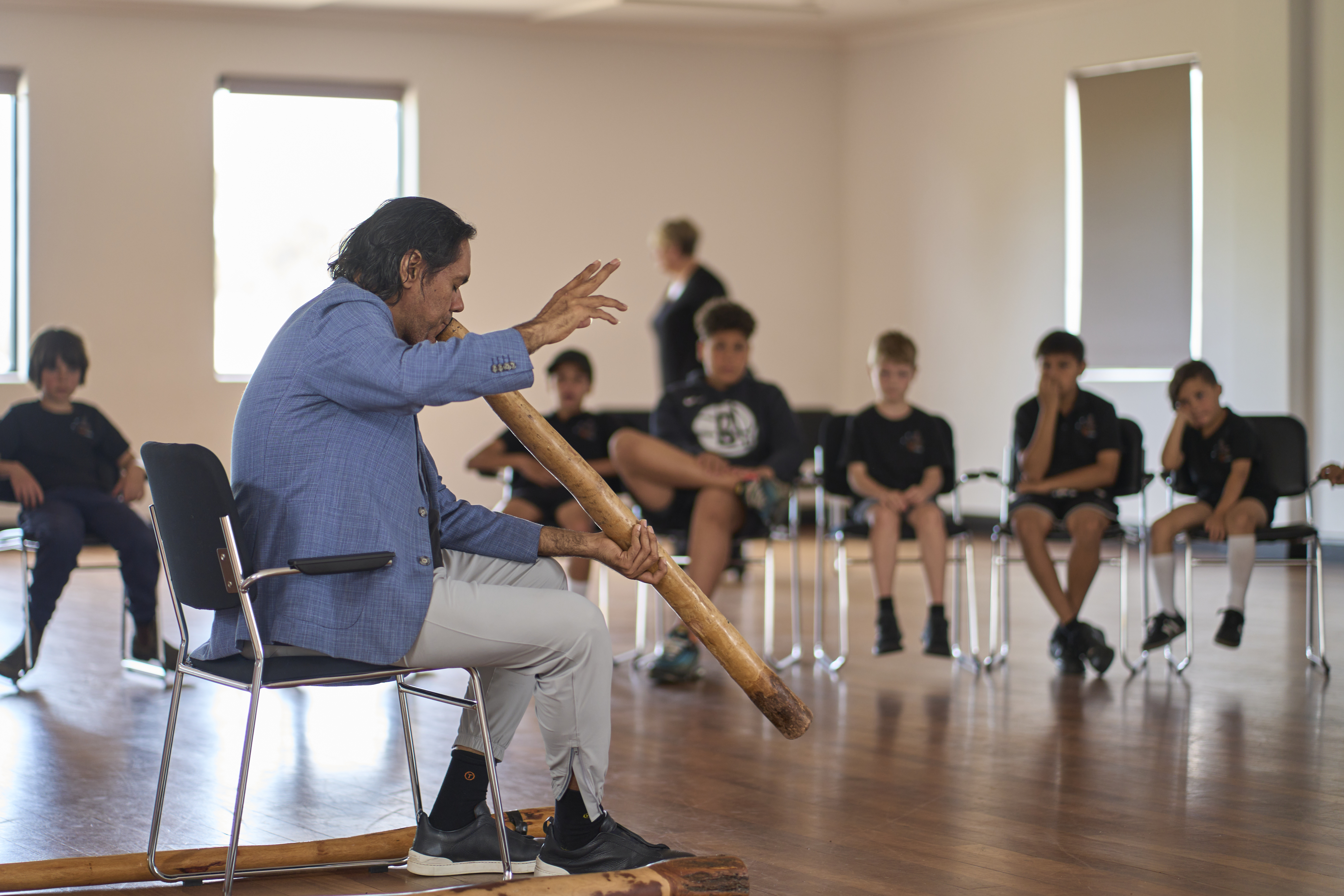Ensemble Q’s tour with William Barton would take them to Adelaide Town Hall for just one night. On the day of the concert, Barton travelled with Sandra Taylor to Ngutu College to meet with students, listen to them play, and share culture.
Barton talked about family, about art and his responsibility, their responsibility to be proud of their identity. It wasn’t all serious: he also gave them tips on new noises they could make on the yidaki, how to use their voices, to make it fun and inject a little showmanship into their playing.
‘I don’t think I’ve ever seen these kids sit quite so still,’ says Sandra. ‘There were so many layers. It was a privilege to be in the room.’
Later that day the students travelled to Adelaide Town Hall to attend the Ensemble Q concert, with Barton’s words, 'Sit up straight, be proud of who you are' still in their ears. And after the concert, he posed for pictures on stage with the group, signed autographs and returned a Ngutu College yidaki, borrowed from them and played in the concert.
'The 26 young boys were starstruck,’ says Sandra.
The Ensemble Q tour ended with a chorus of praise from critics, noting the virtuosic performances. West Australian critic David Cosworth wrote: ‘Vignettes drawn from nature danced attendance on the age-old soul of the didgeridoo; reflecting, relaxing then re-engaging as Barton worked the dynamic of seasoned wood and human breath; …a tone poem for the ages summoned not by serried orchestral ranks but by a cohort of eight ancient and modern instruments each expertly guided and delivered.’
Ensemble Q went on to become one of the best-selling tours of 2024.
Meanwhile, Ngutu College’s Music Education Residency came to a close in December 2024. Their end of year concert was a celebratory affair which featured student ensembles of all shapes and sizes, plus a performance from the Citizen Orchestra, a group assembled from students, teachers, parents and community members, all making music together.
It is just the start of a sustained music program at Ngutu College. But, as this Annual Report is being compiled in early 2025, Ngutu College has already applied for a coaching session for this year’s Strike A Chord, which bodes well.
This – all of this, from concert stage to classroom to community hall – might be what a music-rich future for all Australians looks like.



